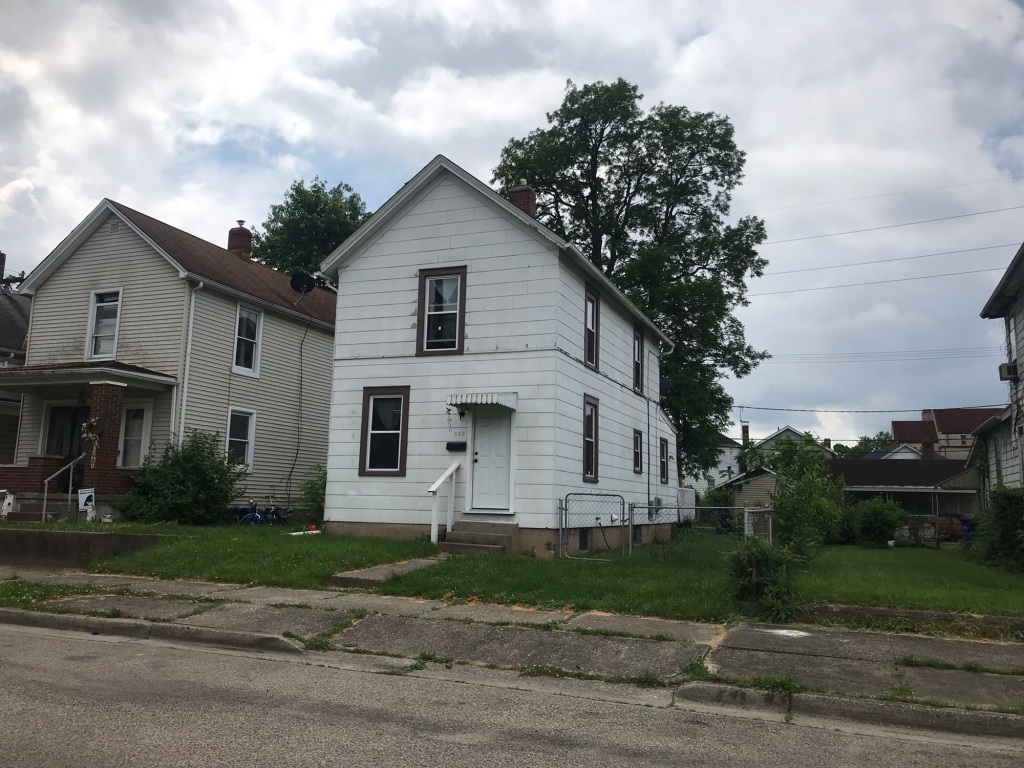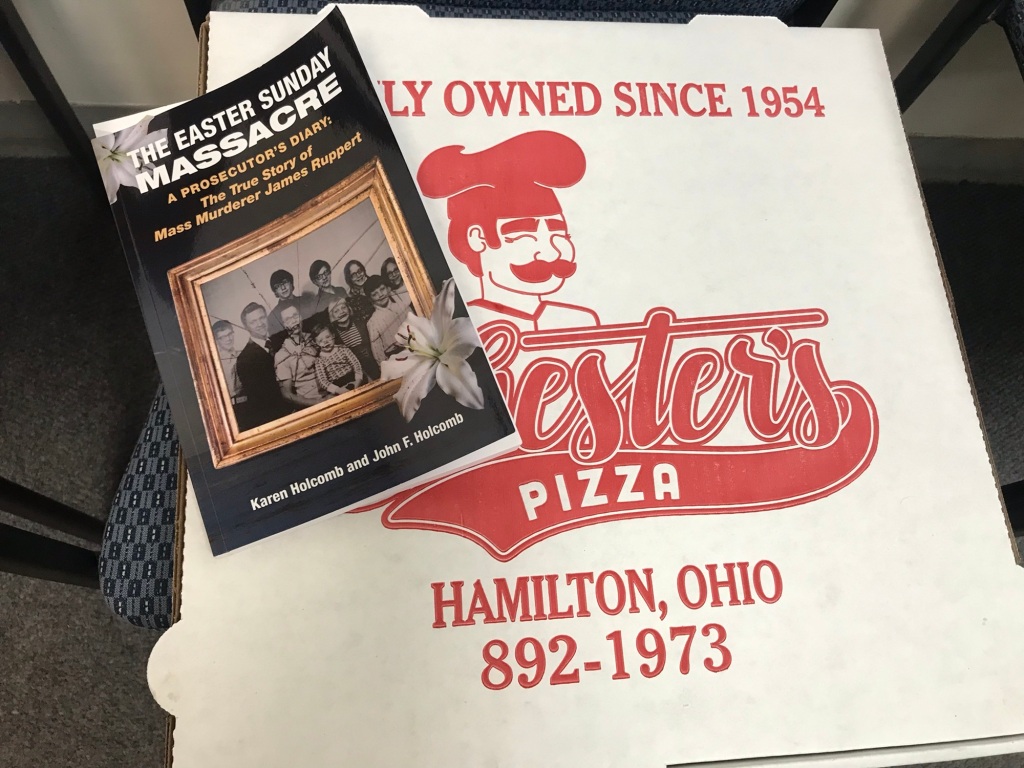Sometimes, you run into something special, which continues to be the case with the books from Chilidog Press, following what I considered a wonderful experience with the book by Karen Holcomb on the Ruppert Murders. That might not sound like good reading, but it was because it captured a time that now seems like a long-forgotten period, only captured by literature. I had a chance to talk to Michael Gmoser recently, who is the prosecutor for Butler County now and worked on the case back then, which was so obvious, and I have a lot of respect for what a conservative prosecutor has to go through to get a case to court, let alone successfully prosecuted. It’s not easy; evil has been working in the background for a long time and continues to this day, the forked tongue of many devils, and they have been attacking us over a long period at a rate that human lifetimes typically don’t measure. Yet their impediment is no less ruthless, and prosecutors have their work cut out for them. I liked the book on the Rupert Murders so much that I turned to another one that had long been on my list, that also turned out to be a dramatic treasure, and that is Not in Our Town: The Queen City vs. The King of Smut by Peter Bronson. I don’t think a lot of people realize how important Cincinnati has been in fighting evil on a national stage, but this book by the former Cincinnati Enquirer reporter and editor captured it all very well, from the mob infestation that started a dark path for one of the world’s cleanest cities, to what it is today, a borderland haven of cutthroats and nefarious criminals unleashed by progressive politics for the destruction of all civilization, as presented in the efforts of modern prosecutors Joe Deters and his assistant at the time, the very excellent Juvenile Court Judge Melissa Powers. And the superb work of another famous prosecutor and sheriff, Simon Leis.

We’re talking about the beginning attacks from a global progressive movement that hid behind organized crime and moved through policy and our courts into polite society as a menace always lurking in the background, and the efforts of reporters, police, and prosecutors to stop it as it thrived in Newport, Kentucky and migrated over into the clean image of Cincinnati to destroy the concept of families and conservative politics essentially. There was a lot of money to be made off evil and the destruction of good community values, so there were many groups that sprang up to take advantage of such an imposition over time, whether it be outright organized crime, or corrupt government officials organizing the killing of American presidents and destroying the lives of media figures like Charlie Keating because they were all American poster boys and had to be brought down. Just as they tried to with the former NFL star turned sheriff, George Ratterman when they drugged him and tried to ruin his squeaky clean image by drugging him and taking pictures of him in compromising positions with a hooker. What worked and didn’t work became a playbook of the political left over the years, and much of it happened in Cincinnati, Ohio, because that was the target of much mischief. And behind all the efforts was a mob-placed hit man of a different killer nature, Larry Flint, who was so evil and vile that he meant to lead a personal crusade of destruction against family values as he draped himself in the First Amendment to temp us all into abandoning the Constitution, just to stop him. He went so far as to devise plans to blow up the Supreme Court.

But Cincinnati stopped many of these attacks, which I see as the template for what is happening nationally against the same evil. It’s not the classic mobs that we know now from movies, but globalists who have taken over, only on a much larger scale. I always liked Peter Bronson as a reporter, but I’ll admit that I stopped reading it after their hit piece against me in 2012, and I determined to do my reporting for people to take the place of what classic newspapers used to provide with editorials and opinion pages with letters to the editor. But Peter’s book answered many questions for me regarding what happened to The Enquirer after it was purchased by the Gannett group and lost its local flavor. It makes a lot more sense to me now what happened, as I had a front-row seat to all this over the last forty years. Peter Bronson managed to capture it all in that excellent book Not In Our Town, which was quite a trip down memory lane and a perspective that defines the fights of our current age. Evil is at work in the world in all the ways that it was in the land of Canaan under biblical consideration. And Cincinnati was the battleground that remains a hedge against its vile menace. Cities like San Francisco, New York, and Chicago have long fallen to progressivism. But Cincinnati has resisted thanks to prosecutors like Simon Leis and many others and a public who saw through the smoke and kept electing those kinds of representatives to fight those fights.
I was able to see Sheriff Jones at a recent event where Attorney General Yost was there putting together a run for the next governor of Ohio shortly after I was able to read these excellent books with regional intentions, but very much defined the fight we are fighting nationally and internationally and I was feeling very reverent. Not just in Peter Bronson for doing what he couldn’t do at the Enquirer, and that is reporting this whole truth in this battle against Larry Flynt and the way sex and pornography are used as weapons against our Constitution to destroy American society, but in the thin line that prosecutors and sheriffs utilize to fight on behalf of those who elected them. We might not always agree on every little thing and personal issues creep in and erode the trust it takes to fight crime and prevent an insurrection against our values by vile characters always lurking in the background. Larry Flynt was a solitary character put in place by the mob to use sex businesses to provide cover for their many other crimes, and to use that cover to keep law enforcement busy while organized crime made a killing with the results. It worked so well that they took the game internationally, and it’s the mess we see today. But that doesn’t mean we have to put up with it. We can and should fight it. We should put our differences aside and find what does join us, and that is a fight for America to be great because the people who make it up strive to be so. And are not lured away from the task of pornography and acceptance of crime from a lawless bunch of losers who want to corrupt the world with their evil menace. It’s the same temptation that was captured in the Bible, to fight for God or not and yield to the forces of evil whenever they corrupt, whether it be Sodom and Gomorrah or the Land of Canaan in general. The book Not in My Town by Peter Bronson tells the authentic story of how good people fought to keep Cincinnati clean and accessible—and stood against evil when it counted most, which is a blueprint for the world to follow.
Rich Hoffman

Click Here to Protect Yourself with Second Call Defense https://www.secondcalldefense.org/?affiliate=20707


